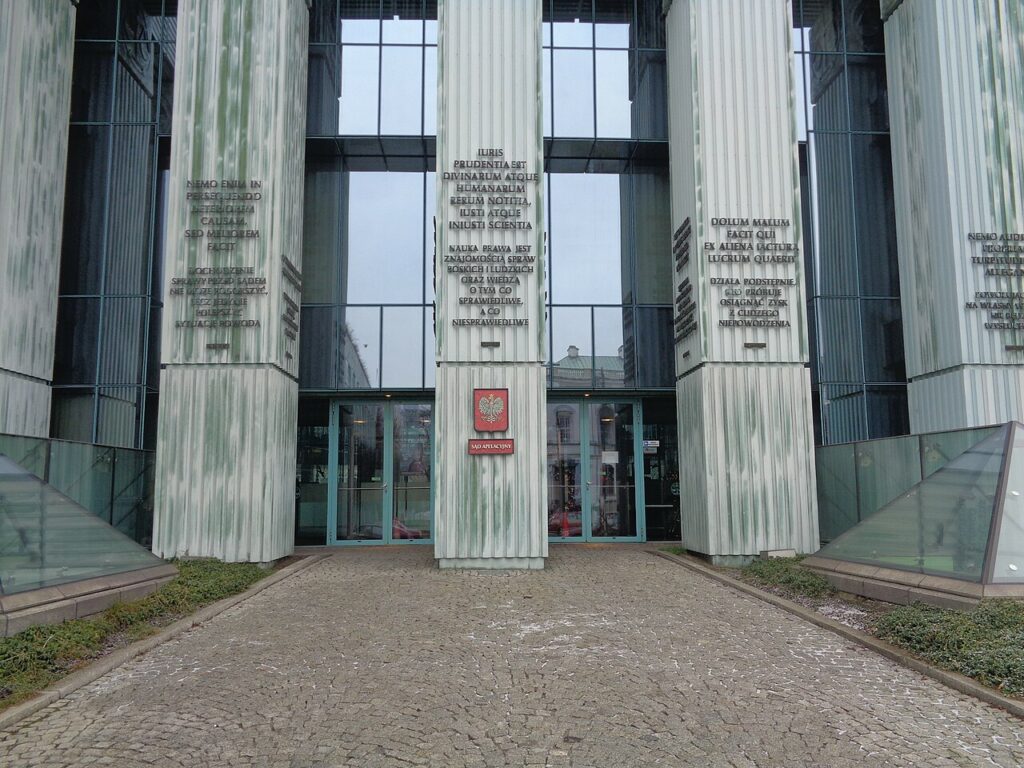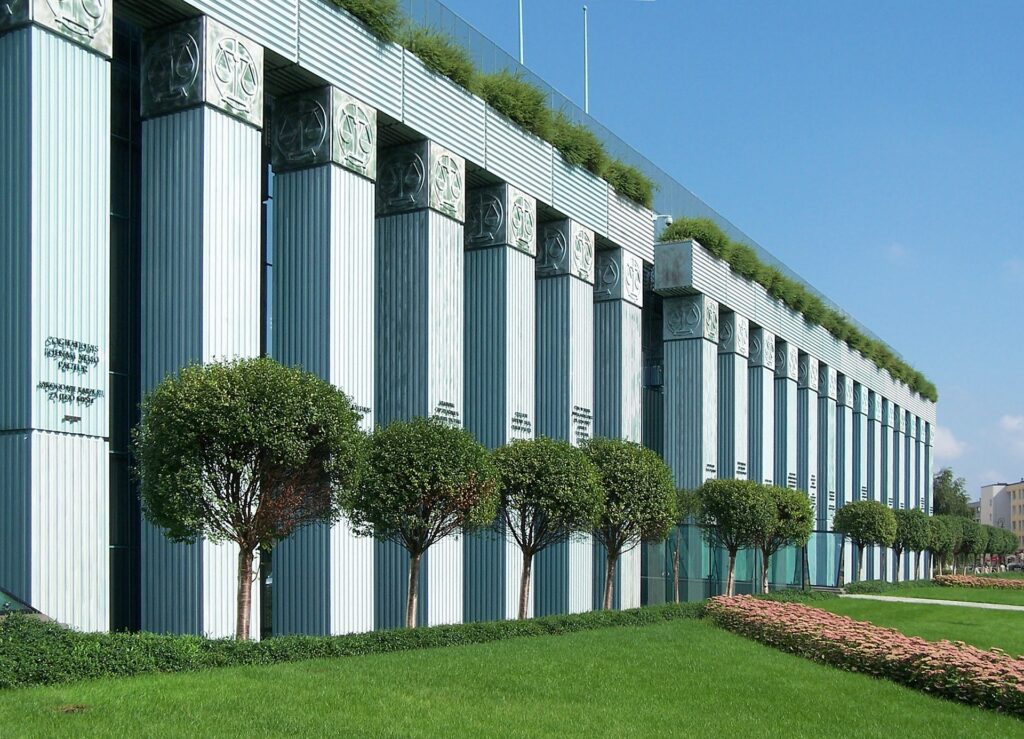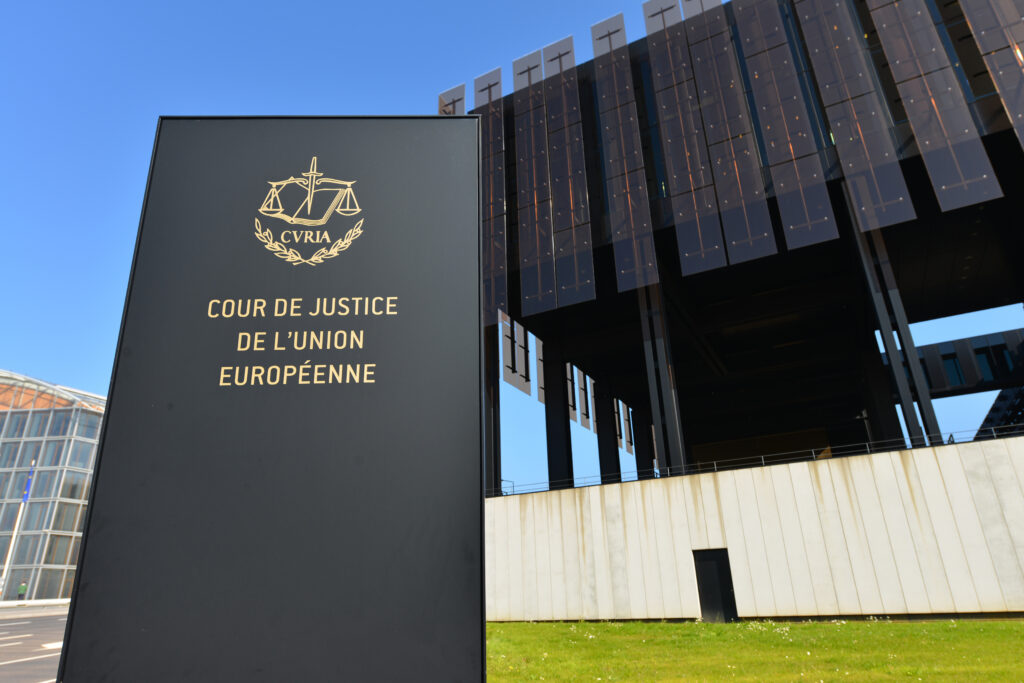Presidential elections, which have just taken place in Poland, were won by the candidate supported by the opposition. According to the law, the validity of the elections should be decided by the Extraordinary Review and Public Affairs Chamber of the Supreme Court. However, the government is questioning the competence of this chamber, which could be interpreted as an attempt to obstruct the transfer of power to the newly elected president.
In the early morning of 2 June 2025, the National Electoral Commission officially announced the results of the Polish presidential election, declaring Karol Nawrocki as the victor. Pursuant to Article 321 of the Polish Electoral Code, this announcement initiated a 14-day period for the submission of electoral protests and a 30-day period for the Supreme Court to adjudicate the validity of the election, following the resolution of all such protests, in accordance with Article 324 of the Electoral Code. Under Article 26 § 1(2) of the Act on the Supreme Court, jurisdiction over this matter rests with the Extraordinary Review and Public Affairs Chamber of the Supreme Court.
Notably, even prior to the official announcement of the election results, the Minister of Justice, Adam Bodnar, urged the First President of the Supreme Court, Małgorzata Manowska, to seek a means to “avoid controversy over the validity of the presidential election.” This ambiguous appeal appears to align with the government’s previously expressed view that the Extraordinary Review and Public Affairs Chamber should be deprived of its constitutional competencies.
Minister Bodnar had made a more explicit statement to this effect shortly before the first round of the presidential election, in the context of the Supreme Court’s impending decision on the validity of a Senate by-election held on 16 March 2025 in a constituency covering part of the city of Kraków.
On 14 May, a statement published on the Ministry of Justice’s website effectively expressed the Minister’s intention to prompt the Supreme Court to act contrary to binding law. This position was predicated on several assertions:
The Prosecutor General has consistently maintained that the appointment of judges to the Extraordinary Review and Public Affairs Chamber was conducted in a manner incompatible with the Constitution of the Republic of Poland. Consequently, it is argued that this Chamber does not constitute a “court” within the meaning of Article 45(1) of the Constitution. Therefore, its rulings allegedly lack the legal force of Supreme Court judgments as understood under the Electoral Code. While Article 101(1) of the Constitution states that the validity of elections to the Sejm and Senate shall be determined by the Supreme Court, it does not specify which chamber holds jurisdiction. Minister Bodnar therefore contends that, due to the alleged dysfunction of the Chamber and the irregular status of its members, it is impossible to ensure an impartial and independent ruling on the validity of the election. As such, he argued that the matter should be referred to a panel of judges that upholds democratic standards and the rule of law.
Accordingly, the Minister called for the exclusion of all judges from the Extraordinary Review and Public Affairs Chamber from the proceedings and proposed that the matter be transferred to the Labour and Social Insurance Chamber of the Supreme Court (which until 2018 had competence in public matters, including electoral protests, based on § 30 of the Supreme Court Rules of Procedure, which was the annex to a Resolution of the General Assembly of Supreme Court Judges). Additionally, Minister Bodnar suggested, that only judges appointed prior to 2018 were to be involved.
It should be recalled that Minister Bodnar saw no problem with the fact that it was the Extraordinary Review and Public Affairs Chamber that ruled on the validity of the Polish parliamentary elections held in autumn 2023, which turned out to be favourable to the current government majority. The hypocrisy of the current government in this regard was recently pointed out by the Polish Ombudsman.
However, the Supreme Court rejected Bodnar’s suggestion and, on 14 May 2025, ruled on the validity of the Senate by-elections in accordance with the applicable legal provisions.
In response to the presidential election, the First President of the Supreme Court issued a statement on 5 June 2025, characterising the Minister’s conduct as disinformation.
She emphasised that the competence of the Extraordinary Review and Public Affairs Chamber to adjudicate the validity of elections is not only constitutional but expressly derived from the Constitution. Articles 127(7) and 129(2) of the Constitution delegate the regulation of such procedures to statute. These provisions are implemented by both the Electoral Code and the Act on the Supreme Court, the latter of which expressly confers jurisdiction on the Extraordinary Review and Public Affairs Chamber.
Given this legal framework, the Minister’s proposal to reassign jurisdiction to another chamber in the absence of a legal basis amounts not only to incitement to violate statutory law but also to an indirect infringement of the Constitution.
The First President further addressed the argument advanced by the Minister and other government officials that the jurisdiction of the Extraordinary Review and Public Affairs Chamber is limited by the jurisprudence of the Court of Justice of the European Union (CJEU) and the European Court of Human Rights (ECtHR). She clarified that such judgments apply only within the scope of the respective courts’ competence: EU law in the case of the CJEU; and in the case of the ECtHR, the right to a fair trial in civil and criminal matters under Article 6 of the European Convention on Human Rights. Neither court has the authority to adjudicate on the internal constitutional structure of Poland, and thus their rulings are not applicable to the present question regarding the internal jurisdictional distribution within the Supreme Court (indeed, some of the judgments issued by the two European courts arguably exceed the powers conferred upon them under the relevant treaties.)
In conclusion, the First President stated that:
All public statements made by politicians—particularly those holding the highest offices of state—which challenge the constitutional competence of the Extraordinary Review and Public Affairs Chamber to adjudicate on the validity of the presidential election, stem either from a lack of understanding of the law or from a deliberate intent to destabilise the Polish state and exacerbate societal polarisation. The purpose of such statements can only be to exert unlawful influence on the Supreme Court in the performance of its constitutional duties, in breach of Article 178(1) in conjunction with Article 173 of the Constitution of the Republic of Poland.
This raises serious concerns as to the true objective of Minister Bodnar’s actions. In practice, they appear to seek a situation in which the decision on the validity of the presidential election is rendered by a body lacking jurisdiction, thereby rendering the entire process null and void. One could reasonably surmise that the Minister seeks to obstruct the lawful confirmation of the election result and, by extension, prevent Karol Nawrocki from assuming office. Although such a conclusion may be considered premature, the facts undeniably highlight the detrimental impact of the Minister’s disregard for the binding legal framework on the rule of law and institutional order of the Republic of Poland.
Source of illustration: Wikipedia.



